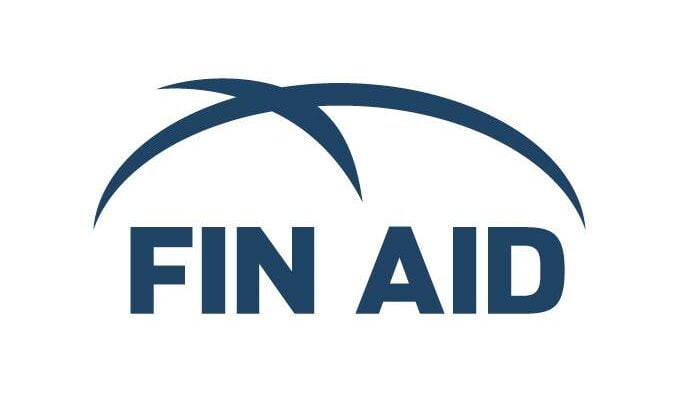Retrieved from
Inka
to Kiev to visit the father of my Ukrainian family back home and, of course, to get some hospital supplies. Raakel stayed in Lviv, as her departure to Finland took place before our return. It’s really strange how you’re used to everything. We went to the store to get our lunch and set off for a six-hour drive closer to the front lines. NRJ is on the radio and the scenery is changing. Inka had started off with a little less sleep, so she habitually put the neck pillow on and started popping until she fell asleep. You drive to the checkpoints quite confidently with a routine and don’t get too excited as long as you don’t make thunderstorms and start taking pictures. So even experienced journalists should know that they are military targets and there are rightly signs warning against exposing the structures to the enemy.
Inka
to Kiev to visit the father of my Ukrainian family back home and, of course, to get some hospital supplies. Raakel stayed in Lviv, as her departure to Finland took place before our return. It’s really strange how you’re used to everything. We went to the store to get our lunch and set off for a six-hour drive closer to the front lines. NRJ is on the radio and the scenery is changing. Inka had started off with a little less sleep, so she habitually put the neck pillow on and started popping until she fell asleep. You drive to the checkpoints quite confidently with a routine and don’t get too excited as long as you don’t make thunderstorms and start taking pictures. So even experienced journalists should know that they are military targets and there are rightly signs warning against exposing the structures to the enemy.
Our destination was a network that distributes its aid to the east and south, but first we stop for the night in Kiev. The traditional interrogation and car check by the soldiers, followed by a visit to the yard, stuff inside and catching up. So two Ukrainians have been living at home since mid-March and we intend to sleep at their place. I haven’t thought it was anything special that I haven’t slept in my own bed for four months or owned a wardrobe. The situation is that I have people living with me because there’s a war going on somewhere. Dad was a bit moved and offered us borscht, pizza, sausage and dried meat. I’ve already learned to refuse vodka when neither my head nor my stomach can handle it. During the night the air alarm started and we heard some banging somewhere far away. Yet you can still fall as soundly as at home or at the cottage. That’s just the way it is.
In the morning, we set off for Irpin, where a local doctor was waiting for us. An epic adjustment due to the instructions and the language barrier, but we went round and round and came together. In between, the policemen also talked about what we do when we drive as we please. The boot of our doctor’s car was riddled with bullet holes after five Russian soldiers had tried to shoot him on the first day of the war. There are still armies who think that a doctor driving a civilian car is a military target. Wheelchairs, aids, equipment, clothing, medicines and supplies were unloaded from the cars and taken to a local clinic. There they are sorted and about 80% of all goods are sent to hospitals in the East and South, including in the Russian-occupied territories. For example, they brought in some hoses that we hadn’t been able to identify and had been looking for for some time. There was also a sense of wonder about the availability of suction equipment for surgery. The derogation law makes it difficult to carry out formal procurement. This time we remembered to take pictures and Inka, an experienced kiowa walker, wanted to show us a few places on the way back.
There’s a shopping mall bombed, there the Russians rounded up the townspeople to rape them, here they built a checkpoint where they shot everyone who was passing by, over there they bombed the courtyard of an apartment building to smithereens and that big warehouse was pulled right around the bend by some really big bomb…
What struck me is that many of the warehouses are completely destroyed, but there are individual smaller missiles or even cannon fire in the apartments. My own gut feeling suggests at least partial intent. Cars have been burned or shot at. Endlessly destroyed buildings. You can see clear war crimes just by driving around.
Finally, we drove past the so-called tank cemetery. There were several Russian troop-carrying wagons and tanks on the side of the road, all banged up. Charred and blown to pieces. Some even had their turrets blown off. Lives have certainly been lost, but it was hard to feel particularly bad about it, given what we had seen before. War is shit, but it is impossible to feel sympathy for an army that rapes and murders civilians.
When I started this job, I wasn’t supposed to go to the Ukrainian side. A hundred metres from the border, I started to feel anxious. I didn’t want to take sides and I was very careful that nothing that went to Ukraine went to the military, although of course at the time I had to be concerned about the security of the refugee transport. While I’ve been here, it’s become clear that what we’re up against in Ukraine is pure evil. In no civilised country would such systematic terrorism be tolerated. Hopefully, no civilised country will accept any other outcome than holding criminals accountable for all this.
For me, these longer visits are starting to be done. A few nights in Lviv and with a refugee family to Finland. Everyday life calls if you can call it that anymore. 







